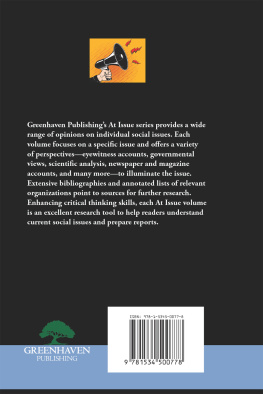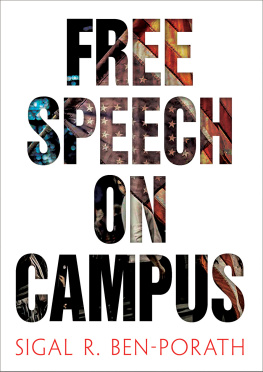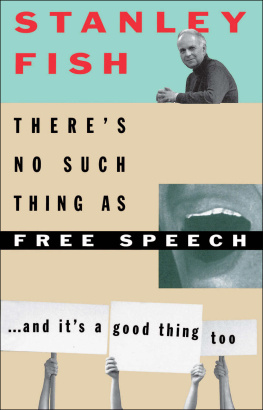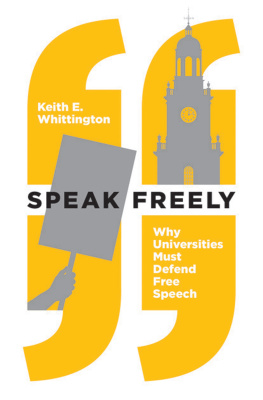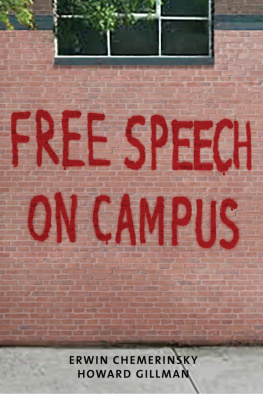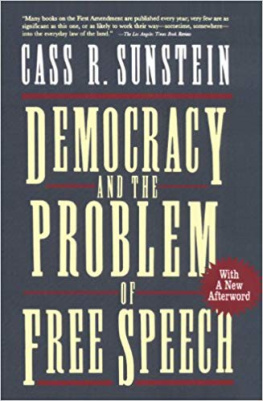Reflections on the University of California
Reflections on the
University of California

FROM THE FREE SPEECH MOVEMENT TO
THE GLOBAL UNIVERSITY
Neil J. Smelser

University of California Press, one of the most
distinguished university presses in the United States,
enriches lives around the world by advancing scholarship
in the humanities, social sciences, and natural sciences.
Its activities are supported by the UC Press Foundation
and by philanthropic contributions from individuals
and institutions. For more information, visit
www.ucpress.edu .
University of California Press
Berkeley and Los Angeles, California
University of California Press, Ltd.
London, England
2010 by The Regents of the University of California
Library of Congress Cataloging-in-Publication Data
Smelser, Neil J.
Reflections on the University of California: from
the free speech movement to the global university /
Neil J. Smelser.
p. cm.
Includes bibliographical references and index.
ISBN 978-0-520-26096-2 (cloth: alk. paper)
1. University of California, BerkeleyHistory.
I. Title.
LD758.S64 2010
378.79467dc22
2009033297
Manufactured in the United States of America
19 18 17 16 15 14 13 12 11 10
10 9 8 7 6 5 4 3 2 1
This book is printed on Cascades Enviro 100, a 100%
post consumer waste, recycled, de-inked fiber. FSC
recycled certified and processed chlorine free. It is acid
free, Ecologo certified, and manufactured by BioGas
energy.
Introduction
UNLIKE MOST ACADEMICS AT MAJOR research universities in the United States, I spent most of my professional career at one institution. I joined the Berkeley faculty as an assistant professor of sociology in Fall 1958 at the age of twenty-eight, just after receiving my PhD from Harvard. I remained at Berkeley for thirty-six years, retiring formally in 1994 at the age of sixty-four, at the time of the third VERIPthe incentive scheme put forward by the University of California in the early 1990s to induce high-salaried senior faculty to retire early. At that time, however, I assumed another position, director of the Center for Advanced Study in the Behavioral Sciences at Stanford, where I served until 2001. I then returned to Berkeley; I have taught a course almost every year in the School of Public Health, taught at other universities on several occasions, taken on miscellaneous assignments as a Berkeley emeritus, continued my research and writing, and maintained contacts in the university community.
In my eventful years at the University of California, I had occasion to touch many parts of that special elephant, thereby gaining perspectives and knowledge from different points of view. My involvements were the following:
The academic faculty. I not only taught in my department, but in my capacity as University Professor of Sociology (197294) I also gave courses of instruction on five other campuses: Davis, Irvine, San Diego, San Francisco, and Santa Cruz.
The department. I served two terms as chair of the Berkeley sociology department, 197577 and 199192.
Committee life. I served on and chaired numerous committees at the department, Academic Senate, Berkeley administration, and systemwide administration levels.
Student services. I was a practicing therapist and member of the psychiatry department, Cowell Hospital, Berkeley campus, 196672 and 198182.
Organized research units. On the Berkeley campus I was affiliated with the Institute of Industrial Relations in the 1960s; associate director of the Institute of International Studies, 196970, 197273, 198189; and acting director of the Center for Studies in Higher Education, 198789.
The education abroad program. I served as director of the UC Education Abroad Program for the United Kingdom/Ireland, 197779.
The Academic Senate. I chaired the Policy Committee of the Berkeley Division, 197172; chaired the Committee on Educational Policy, 197980; chaired the Berkeley Division, 198284, and chaired the Systemwide Academic Council and Assembly, 198587.
The chancellors office. In 1965 I was assistant to the chancellor for student political activity (see ), assistant chancellor for educational development, 196668, and was called in as an informal advisor on subsequent occasions.
The office of the president. In 199394 I served as special advisor on long-term planning to President Jack Peltason and Vice-President and Provost Walter Massey. In addition, I worked as critic and advisor to both Clark Kerr and David Gardner, past presidents of the university, as they prepared their respective memoirs.
The board of regents. I was a nonvoting but regularly attending and participating faculty representative on the board, 198587.
The national laboratories. During my period as faculty representative to the regents I became acquainted with many issues facing the Los Alamos, Livermore, and Lawrence Berkeley laboratories. Subsequently, between 1989 and 1997, I was a member of the laboratory advisory committees appointed by the office of the president and visited and participated in reviewing each laboratory once a year, sometimes more often.
Out of these involvements emerged a great deal of knowledge and writing about the university. At the end of my service in the office of the president, 199394, I took it upon myself to write a long advisory memo on governing the university ().
A final feature of my career is that the sociology of higher education has been among my research interests. As an expression of that interest I co-edited and wrote half a book on the history of conflict and change in the University of California between 1950 and 1970 (Smelser, 1973a); coauthored a book on the academic job market, including a case study of hiring at Berkeley in the mid-1970s (Smelser and Content, 1980); wrote an epilogue on conflict in American higher education in the 1960s (Smelser, 1973b); and wrote the essays that appear as of this volume.
Such are the diverse historical circumstances that have precipitated and produced this book of essays. At the beginning of each chapter I include a background statement explaining the context for writing it. To conclude this introduction I will add two general points about my experience in the university and writing about it.
The first point is personal. As my circle of involvements in the university continued to expand, so did my commitment to and affection for the institution. The most decisive transition was in 1965, when I moved from a faculty member in a single department, with little involvement outside it, into a campuswide role in the chancellors office (). My contacts with faculty, administrators, alumni, students, and staff multiplied, and one of the consequences of that year was that I came to appreciate their diverse points of view, though never without a certain critical distance that has seemed to be an enduring feature of my personal history. More important, I switched from a situation of somewhat splendid personal isolation to occupying a central role in an institution that was fighting for its life and under constant bombardment from all sides. I will not claim that this kind of crisis is necessary for creating loyalty to and love for an institution, but it certainly accelerated and cemented those feelings. That cycle of immersion, understanding, and appreciation repeated itself in less dramatic form as I subsequently expanded the number and kinds of involvements in university life.
Next page

